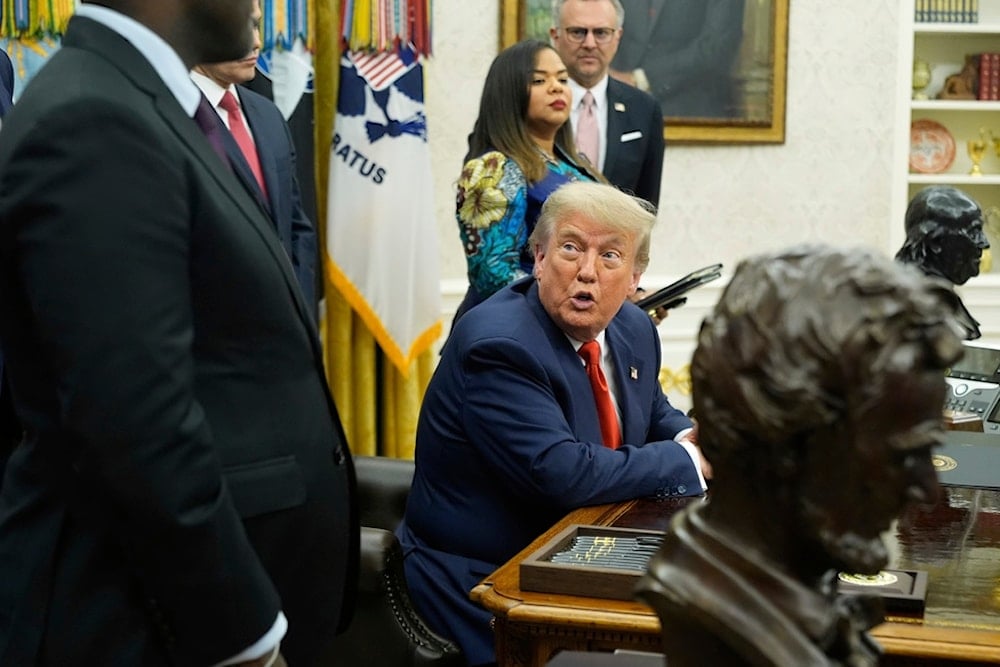Trump repeats call for Canada to become 51st US state
The statement echoes earlier remarks Trump made in January 2025 and is part of a growing pattern of rhetoric that has alarmed Canadian officials.
-

President Donald Trump looks at Rwanda's Foreign Minister Olivier Nduhungirehe as Congo's Foreign Minister Therese Kayikwamba Wagner, , Secretary of State Marco Rubio and White House senior adviser Massad Boulos listen, Friday, June 27, 2025, in the Oval Office at the White House in Washington (AP Photo/Manuel Balce Ceneta)
US President Donald Trump has once again stirred controversy by declaring that Canada should be absorbed into the United States, claiming Ottawa depends too heavily on Washington for both defense and economic stability.
"I love Canada. Frankly, Canada should be the 51st state, okay, it really should, because Canada relies entirely on the United States. We don't rely on Canada," Trump said during a Fox News interview on Sunday.
The statement echoes earlier remarks Trump made in January 2025 and is part of a growing pattern of rhetoric that has alarmed Canadian officials. Trump has long criticized NATO allies for underinvesting in their defense, singling out Canada for failing to meet spending targets.
He reiterated that if Ottawa joined the US as a state, it would benefit from protection against trade penalties and enjoy broader defense guarantees: "Canada could avoid Washington's trade tariffs and receive military protection if it joined the US as the 51st state."
Canadian Prime Minister Mark Carney swiftly rejected the notion during a recent Oval Office meeting, telling Trump that "Canada is not for sale" and likening the proposal to a "protection racket." Carney added that Canada is a sovereign state with independent institutions and does not intend to forfeit that status to avoid tariffs.
'Not For Sale'
The remarks have triggered a wave of backlash in Canada, where national unity symbols and merchandise bearing slogans like "Canada is not for sale" have proliferated. Public figures and politicians across the political spectrum have condemned the suggestion as an affront to the country's sovereignty and a reflection of Trump's transactional worldview.
While nearly all Canadians oppose annexation, a small fringe—primarily located in Alberta—has shown support for the idea, citing frustrations with Ottawa's federal policies. However, polls indicate that such sentiment remains confined to a marginal 15% of the population, with the overwhelming majority firmly rejecting any form of US absorption.
The issue has also escalated trade tensions. Earlier in the year, the Trump administration imposed a 25% tariff on Canadian aluminum and auto exports, briefly paused but later reinstated, further straining bilateral ties.
Read more: US ending all trade talks with Canada over new tax on US tech firms
Despite the rhetoric, diplomatic channels remain open. Canadian officials continue to engage with Washington on defense cooperation, missile defense upgrades under NORAD, and energy infrastructure. But the repeated talk of annexation is seen in Ottawa not as a serious policy proposal, but as a deeply provocative challenge to Canadian identity.

 3 Min Read
3 Min Read









